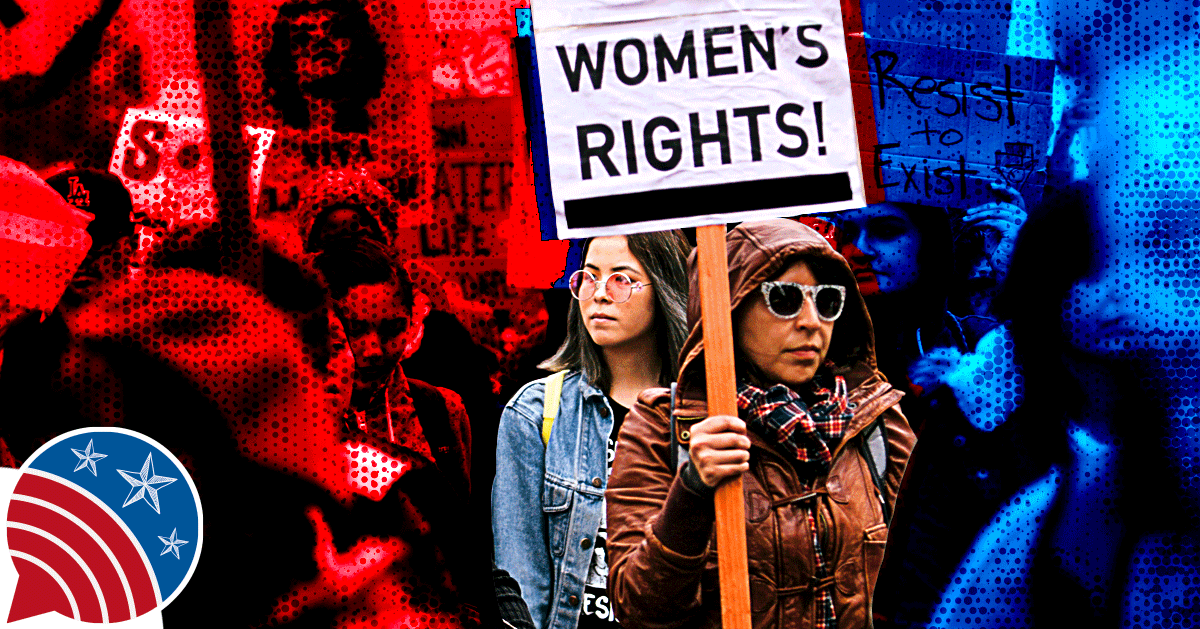
Women’s Rights
How far have women’s rights come and how much further do we need to go? Explore seminal events, cases, and texts such as the Seneca Falls Convention of 1848, Minor v. Happersett (1875), Roe v. Wade (1973), Dobbs v. Jackson (2022), and the Equal Rights Amendment. Prepare to engage in discourse around what needs to be done to secure women’s equal rights once and for all.
Podcasts & Videos
Minor v. Happersett: Women’s Rights, Part 3
Instructions
- Watch and listen to the 60-Second Civics video below. If you'd like, you can also read along using the script that appears below the quiz. Or you can turn on the video's subtitles and read while watching the video.
- Take the Daily Civics Quiz. If you get the question wrong, watch the video again or read the script and try again.
Episode Description
Mark Gage: Welcome to 60-Second Civics, the daily podcast of the Center for Civic Education. I'm Mark Gage. We're joined again today by a very special guest, Lisa Tetrault, associate professor of history at Carnegie Mellon University. Dr. Tetrault, can you explain to us the 1875 case of Minor v. Happersett and the impact that that case had on women and the concept of voting rights?
Dr. Lisa Tetrault: Minor v. Happersett, that was a Supreme Court decision. And shortly after the American Civil War, there were a variety of amendments passed. They were called the Reconstruction Amendments, the 14th and the 15th in particular established birthright citizenship and also black male voting. Women decided that, being left out of those amendments, they would try to test them in the courts.
So they went and voted en masse and then argued, we as citizens have a right to vote. The court rejects that argument. And one of the important things about this decision, which was based on a woman's voting, her name was Virginia Minor. She was a Missourian. As the court says, voting is, in fact, not a right of citizenship.
And so, therefore, women are not entitled to vote by virtue of being citizens, nor as it would soon turn out were many other people. And so its implication for all people was massive because it showed that the Supreme Court was not willing to broadly read voting rights in the aftermath of the American Civil War, but to read them very narrowly and also to deny that it was, in fact, a right of citizenship.
Mark Gage: Thank you so much for joining us today, Dr. Tetrault. That's all for today's podcast. 60-Second Civics, where civic education only takes a minute.
Dr. Lisa Tetrault: Minor v. Happersett, that was a Supreme Court decision. And shortly after the American Civil War, there were a variety of amendments passed. They were called the Reconstruction Amendments, the 14th and the 15th in particular established birthright citizenship and also black male voting. Women decided that, being left out of those amendments, they would try to test them in the courts.
So they went and voted en masse and then argued, we as citizens have a right to vote. The court rejects that argument. And one of the important things about this decision, which was based on a woman's voting, her name was Virginia Minor. She was a Missourian. As the court says, voting is, in fact, not a right of citizenship.
And so, therefore, women are not entitled to vote by virtue of being citizens, nor as it would soon turn out were many other people. And so its implication for all people was massive because it showed that the Supreme Court was not willing to broadly read voting rights in the aftermath of the American Civil War, but to read them very narrowly and also to deny that it was, in fact, a right of citizenship.
Mark Gage: Thank you so much for joining us today, Dr. Tetrault. That's all for today's podcast. 60-Second Civics, where civic education only takes a minute.






